Learn more about appointment referrals and resources at your disposal.

Oncology Rehabilitation
About Oncology Rehabilitation
When cancer is cured, how do you get back to living a life that seems “normal”? The answer? Oncology rehabilitation. This specialized area of care is focused on helping cancer survivors regain their physical, emotional, and social health after their treatment. AHN Oncology Rehabilitation is multidisciplinary care, meaning health care providers all with different specialties are working together to deliver comprehensive, coordinated, and personalized care for AHN patients so they can live full, healthy lives post-cancer.
Cancer recovery is often dependent on your team of providers, including:
- Audiologists
- Lymphedema therapists
- Occupational therapists
- Physical therapists
- Speech therapists
-
Contact us
Oncology Rehabilitation
The goal of our program is to make sure that you get back to full strength after undergoing strenuous cancer care.
Cancer treatment doesn’t always end with surgical, medical, or other therapeutic procedures. If you’re struggling to return to “normal” life after cancer treatment, oncology rehabilitation can help you get back to a life that feels familiar.
When should you consider cancer rehab?
The earlier you can start with therapy, the stronger you will be. If our patients are able, we have therapists to assist:
- Before treatment: Baseline strength and endurance exercises can better prepare you for your treatment.
- During treatment: Specialized physical therapy can safely address and reduce functional declines.
- After treatment: Therapists can help you get back to your daily physical activity levels and begin a lifelong commitment to exercise. Regular exercise has been shown to decrease recurrence of some cancers.
Signs that you may benefit from cancer rehab
Ask your doctor for a referral if you’re experiencing:
- Trouble completing daily activities or participating in family or community life.
- Fatigue or weakness.
- Restricted motion.
- Tightness in soft tissues and “pulling” in scars.
- Poor balance or falling.
- Lymphedema or swelling that won’t go away.
- Neuropathy: bothersome tingling or pain in feet or hands.
For palliative patients and caregivers:
- For patients at the end stages of cancer, rehab can help maintain function and slow decline, instilling greater confidence and independence. We train caregivers on safely assisting and moving patients at home. We also help patients get medical equipment and connect them to other resources.
Why should you choose AHN oncology rehabilitation services?
Cancer patients can rely on AHN’s specially trained therapists to recover normal function and improve their quality of life throughout treatment and recovery.
At AHN, you can expect:
- It’s about your care: AHN’s trained therapists focus on you and your concerns about performing daily activities.
- Before, during, and after: Our pre-treatment evaluation means we can navigate through problems before they occur. Working with us before, during, and after treatment helps you stay at your best throughout the plan.
- Collaboration: We work with your physicians and keep them fully informed of your progress. Our integrated therapy speech therapists, physical therapists, and surgeons all work together, which is rare.
- Certified lymphedema therapists: We manage the condition early, reducing potential long-term side effects like excessive swelling, recurrent cellulitis, reduced function, and pain.
Helping you throughout treatment
Recovery from head and neck cancer involves treating lymphedema of the skin and soft tissues of the neck, rehabilitating swallowing and speech, and regaining full range of motion of the neck and shoulders. We also work with AHN Physical Therapy and Occupational Therapy to ensure your recovery is all encompassing.
First, we will work with you to assess your ability to function and develop an individual care plan.
Your rehab care plan may include:
- Exercises to improve soft tissue mobility and to develop strength, balance, and endurance.
- Interventions to reduce pain and swelling.
- Education for you and your caregivers on dealing with functional limitations at home.
- Optimizing nutrition before treatment in addition to cancer physical and speech therapy.
With speech and physical therapy, the goal is for you to recover from surgery faster. We’ll try to make the process as convenient as possible. We’ll do our best to minimize follow-up appointments and focus on a home program while continuing to monitor your progress. We’ll also coordinate your rehab sessions to avoid conflicts with your cancer treatments and other appointments. Learn more about AHN Physical Therapy and Occupational Therapy.
Before cancer treatment
Oncology prehab is a personalized program of interventions designed to optimize a cancer patient's physical and mental health before cancer treatment begins (surgery, chemotherapy, radiation). It's about "getting fit for cancer treatment."
Benefits for patients:
- Improved physical fitness and resilience
- Reduced severity of treatment side effects (fatigue, nausea, pain)
- Faster recovery after treatment
- Enhanced mental well-being
- Improved quality of life
- Potentially better treatment outcomes
The goals for prehab are to improve a patient's baseline function, minimize treatment side effects, speed up recovery, and enhance overall quality of life during and after cancer treatment. It aims to build a "reserve" of physical and mental well-being before treatment begins, empowering patients to better withstand the challenges of cancer and its treatment and improve their overall outcomes.
Key components of prehab include:
- Comprehensive assessment: Evaluating physical fitness, mental health, nutrition, and potential treatment-related risks.
- Tailored exercise: Strength, endurance, flexibility, and cardiovascular training.
- Nutritional support: Optimizing diet to support immune function and energy levels.
- Mental health support: Counseling, stress management, and coping strategies.
- Education: Providing information about the cancer, treatment plan, and potential side effects.
Continued care
Oncology rehabilitation is set up to get you back to feeling as “normal” as possible. Our focus on a home program means you can continue it or pick it back up when symptoms return.
Just like physical therapy after a broken ankle, it is always an option to return to oncology rehabilitation for new or returning side effects to help you get back to as close to 100% as we can. If it has been over a year since you last saw us, get a referral from your doctor.
Oncology rehabilitation specialists
Through AHN’s multidisciplinary approach to oncology prehabilitation and rehabilitation, you may work with a variety of specialists depending on your individual health needs. Some of the oncology rehabilitation team members include:
Ear, Nose, and Throat (ENT)
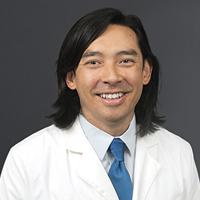
Otolaryngology (ENT)
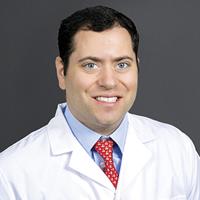
Otolaryngology (ENT)
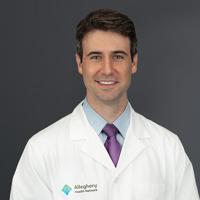
Otolaryngology (ENT)
ENT doctors or otolaryngologists specialize in diagnosing and treating conditions that affect these important areas. An ENT can help with managing treatment-related side effects, addressing oral health issues from cancer treatments, providing reconstructive surgery, and helping with early cancer detection or recurrence. Find an otolaryngologist near you using Find Care.
Speech-Language Pathology

Speech-Language Pathologist

Speech-Language Pathologist
Audiology

Audiology

Audiology
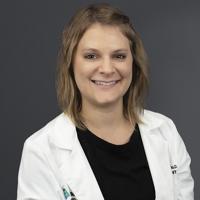
Audiology

Audiology
Prehab
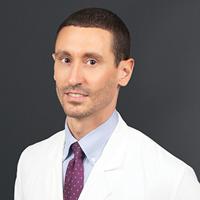
Surgical Oncology

Advanced Practice Provider Specialty

Andrew Chongaway, Physical Therapist
Prehabilitation and Rehabilitation

Nurse Navigation

Outpatient Rehabilitation Manager
How to get care
Talk to anyone in your oncology team about setting up rehab appointments. The referral can be placed by the surgical oncology, medical oncology, or radiation oncology teams.
Once established, you can make appointments directly, but you may need a new referral if you haven’t seen us in over a year.
Nurse Navigators
Call the AHN Cancer Help Line anytime at (412) NURSE-4-U (412) 687-7348 to schedule a cancer-related appointment or to just talk with our nurses about diagnoses, treatments, and side effects.
Clinical trials and research
As part of the Head and Neck Cancer Alliance, we stay up to date on the best practices of care for head and neck cancers. We helped refine and follow the Head and Neck Cancer Survivorship Care Guidelines from the American Cancer Society. The focus of this guide is to lay out best practices for care for head and neck cancers for medical professionals.
The AHN Cancer Institute is a pioneer in cancer research and also participates in clinical trials of new medical oncology therapies that are open for patients who qualify and wish to participate. Patients are screened for consideration with ongoing clinical trials at every stage of their treatment. Find active cancer clinical trials.
What is a clinical trial?
Clinical trials are studies that try to answer questions about new ways to treat cancer with medications, radiation, or surgical techniques. Previous trials have shown how new methods of treatment improve survival and quality of life and reduce the risk of cancer returning.
You participate in a clinical trial only if you volunteer to do so and meet criteria for inclusion in the study, and you can stop participating in a trial at any time.
Who can join a clinical trial?
The plan for the trial, called a protocol, explains what the trial will do and how the study will be done. Based on the questions the research is trying to answer, each clinical trial protocol outlines specific criteria necessary to be eligible to join the trial.
Common criteria for entering a trial are:
- Having a certain type or stage of cancer.
- Having received a certain kind of therapy in the past.
- Being in a certain age group.
- Federal rules help ensure that clinical trials are run in an ethical manner, with your rights and safety protected. It’s to ensure that you’re not put at increased risk by participating in the trial, and that the results of the study are accurate and meaningful.
Conducting clinical trials helps us contribute to Cancer Moonshot — an initiative created by former President Joe Biden and the White House. The goal is to prevent more than 4 million cancer deaths by 2047 and improve the experience for people affected by cancer. We’re doing our part to join this fight by collaborating with more than 60 private companies, patient groups, academic institutions, and nonprofits.
Refer your patient to an AHN specialist
There are two ways for medical professionals, who are not a part of Allegheny Health Network, to refer their patients to an AHN specialist and request their first appointment. You can:
- Call (412) 578-HOPE (412) 578-4673 to speak with an AHN Cancer Institute scheduling coordinator.
- Go to Find Care to find the right AHN specialist and the most convenient location. Then refer your patient, provide relevant patient details, and request an appointment directly from the doctor’s profile.
For more information about referring your patient to an AHN specialist, read the Independent Physician Referral FAQs.
Follow your patient's health care at AHN with EpicCare® Link™
After referring your patient to an AHN specialist, use the EpicCare Link platform to collaborate with their AHN specialist and view your patient's test results, treatment plan, and progress.
If you are new to EpicCare Link, or need to request your own EpicCare Link account, read: EpicCare Link for Patient Follow-up, for user instructions and new account request forms.
When EpicCare Link is not an option for patient's AHN medical records
If you can’t access your patient's AHN test results through the EpicCare Link platform, your patient will need to complete and submit the correct AHN Medical Records Release form, based on their state of residency. Support your patient’s request by downloading the correct medical records release form for them:
EpicCare® is a registered trademark of Epic Systems Corporation and used with permission.
EpicCare® Link™ is a trademark of Epic Systems Corporation and used with permission.

